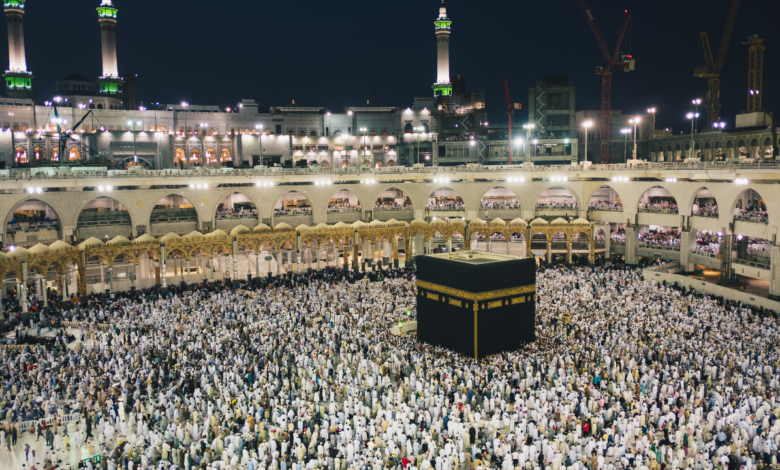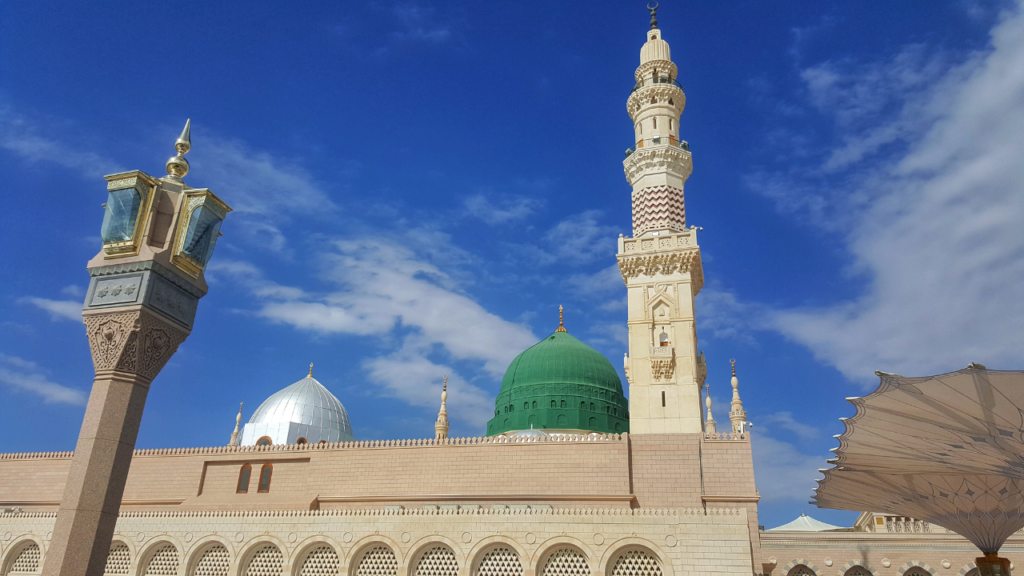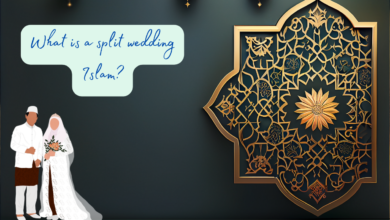
When was Islam started?
Islam is believed to have begun in the 7th century CE, specifically in the year 610 CE, when Prophet Muhammad received the first revelation from Allah (God) through the Angel Gabriel. This event is known as the “First Revelation” and marks the beginning of Islam.

Introduction
Islam is one of the world’s major religions, with over a billion followers worldwide. Its history is rich and complex, spanning over 1,400 years. To understand when Islam started, we must delve into its origins and the life of its founder, Prophet Muhammad. Let’s explore the historical context and key events that marked the beginning of Islam.
Pre-Islamic Arabia
To understand the inception of Islam, we must first examine the environment of pre-Islamic Arabia. Before the advent of Islam, the Arabian Peninsula was a land characterized by tribalism, polytheism, and various forms of paganism. The Arabian Peninsula was home to numerous tribes, each with its own gods, customs, and practices. Mecca, a prominent city in present-day Saudi Arabia, played a central role in this cultural landscape.
The Birth of Prophet Muhammad
The story of Islam begins with the birth of its founder, Muhammad ibn Abdullah, in the year 570 CE in the city of Mecca. Muhammad belonged to the powerful and respected Quraysh tribe. As a young man, he worked as a merchant and was known for his honesty and integrity. At the age of 40, during a period of contemplation and meditation in the cave of Hira, located in the outskirts of Mecca, Muhammad received his first revelation from Allah (God) through the Angel Gabriel. This event marked the beginning of Islam.
The Revelation of the Quran
Over the course of 23 years, Prophet Muhammad continued to receive revelations from Allah. These revelations were compiled into the holy book of Islam, the Quran. The Quran is considered the ultimate source of guidance for Muslims, addressing matters of faith, morality, and daily life.
The Message of Islam
The central message of Islam, as conveyed by Prophet Muhammad, was the concept of monotheism. Islam taught that there is only one God, Allah, and that all humans are equal in His sight. It emphasized social justice, compassion, and the importance of good deeds. Muhammad’s teachings also included guidance on prayer, charity, fasting, and pilgrimage to Mecca.
Also Check
- What’s the difference between Christianity and Islam?
- Holy City of Islam
- What is Quran in Islam?
- Is Islam a peaceful Religion?
The Migration to Medina
As Muhammad continued to preach monotheism and the message of Islam, he faced opposition from the leaders of Mecca, who felt threatened by his teachings. In 622 CE, Muhammad and his followers migrated to the city of Yathrib, later known as Medina, where they found refuge and support from the local tribes. This event, known as the Hijra, marks another significant milestone in the history of Islam and is considered the beginning of the Islamic calendar.
Expansion of Islam
During his time in Medina, Muhammad continued to receive revelations and established a thriving Muslim community. He also engaged in diplomatic efforts and, at times, military campaigns to protect and spread the message of Islam. By the time of his death in 632 CE, much of the Arabian Peninsula had embraced Islam, and his teachings had laid the foundation for a rapidly expanding faith.
Conclusion
Islam began in the 7th century CE with the life and teachings of Prophet Muhammad in the Arabian Peninsula. It emerged in a region characterized by polytheism and tribalism and brought the message of monotheism and social justice. Over the centuries, Islam has grown to become one of the world’s major religions, influencing the lives of billions of people across the globe. Understanding its historical roots helps us appreciate the depth and significance of this faith in the modern world.

Faqs about When was Islam started?
When did Islam begin?
Islam is believed to have begun in the 7th century CE, specifically in the year 610 CE, when Prophet Muhammad received the first revelation from Allah (God) through the Angel Gabriel. This event is known as the “First Revelation” and marks the beginning of Islam.
Who is considered the founder of Islam?
Islam is not founded by a single individual. It is a monotheistic Abrahamic religion, and Muslims believe that it is the culmination of a long line of prophets and messengers sent by Allah (God). Prophet Muhammad is considered the final and last prophet in Islam, through whom the final revelation, the Quran, was revealed.
What is the significance of the year 610 CE in the history of Islam?
The year 610 CE is highly significant in Islamic history because it marks the beginning of the prophethood of Muhammad. During this year, he received the first revelation of the Quran while meditating in the cave of Hira near Mecca. This event is considered the starting point of Islam’s spiritual and religious journey.
How did Islam spread after its inception?
Islam initially spread within the Arabian Peninsula during the lifetime of Prophet Muhammad. After his death in 632 CE, Islam expanded rapidly through a combination of military conquests and peaceful missionary activities. The Islamic Caliphates played a significant role in the early spread of Islam, reaching regions of the Middle East, North Africa, and parts of Europe and Asia over the centuries.
What are the key beliefs of Islam?
Islam is based on the following key beliefs, known as the Five Pillars of Islam:
Shahada: The declaration of faith, bearing witness that there is no god but Allah, and Muhammad is His messenger.
Salah: The performance of daily ritual prayers facing the Kaaba in Mecca.
Zakat: The giving of alms or charity to support the less fortunate.
Sawm: Fasting during the holy month of Ramadan as an act of self-discipline and spiritual reflection.
Hajj: The pilgrimage to the holy city of Mecca, which is obligatory for Muslims who are physically and financially able to undertake it.
What is the Quran, and when was it revealed?
The Quran is the holy scripture of Islam, believed to be the literal word of Allah as revealed to Prophet Muhammad over a period of approximately 23 years. The first revelation occurred in 610 CE, and the final revelation was received in 632 CE. The Quran serves as the ultimate guide for Muslims in matters of faith, practice, and morality.
How has the practice and interpretation of Islam evolved over time?
The practice and interpretation of Islam have evolved over time through the development of various schools of thought and jurisprudence (fiqh). Different cultural, historical, and geographical contexts have led to diverse practices and interpretations within the Muslim world. Additionally, various sects, such as Sunni and Shia Islam, have emerged, each with its own distinct beliefs and practices.
Is there a central authority in Islam, similar to a Pope in Catholicism?
Islam does not have a centralized religious authority equivalent to the Pope in Catholicism. Instead, it has religious scholars, jurists, and clerics who provide guidance on religious matters. Sunni Islam has traditionally followed a consensus-based approach, while Shia Islam has Imams who play a significant role in interpreting religious teachings. However, there is no single overarching religious authority that governs all Muslims.
What are some of the major sects within Islam?
The two largest sects within Islam are Sunni and Shia. Sunni Muslims make up the majority, comprising about 85-90% of the Muslim population. Shia Muslims represent the minority, and there are several Shia subsects, the largest being Twelver Shia. Other smaller sects include Sufism, Ibadi Islam, and more. These sects often have different interpretations of Islamic teachings and practices.






